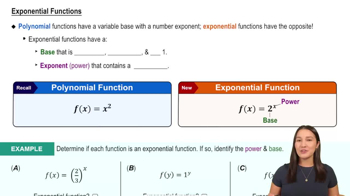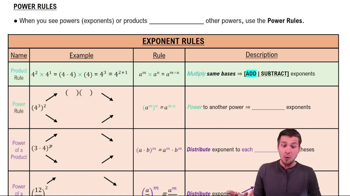Textbook Question
Find the vertical asymptotes. For each vertical asymptote x=a, analyze lim x→a^− f(x) and lim x→a^+f(x).
f(x)=cos x+2√x / √x.
 Verified step by step guidance
Verified step by step guidance Verified video answer for a similar problem:
Verified video answer for a similar problem:



 5:21m
5:21mMaster Finding Limits by Direct Substitution with a bite sized video explanation from Patrick
Start learning